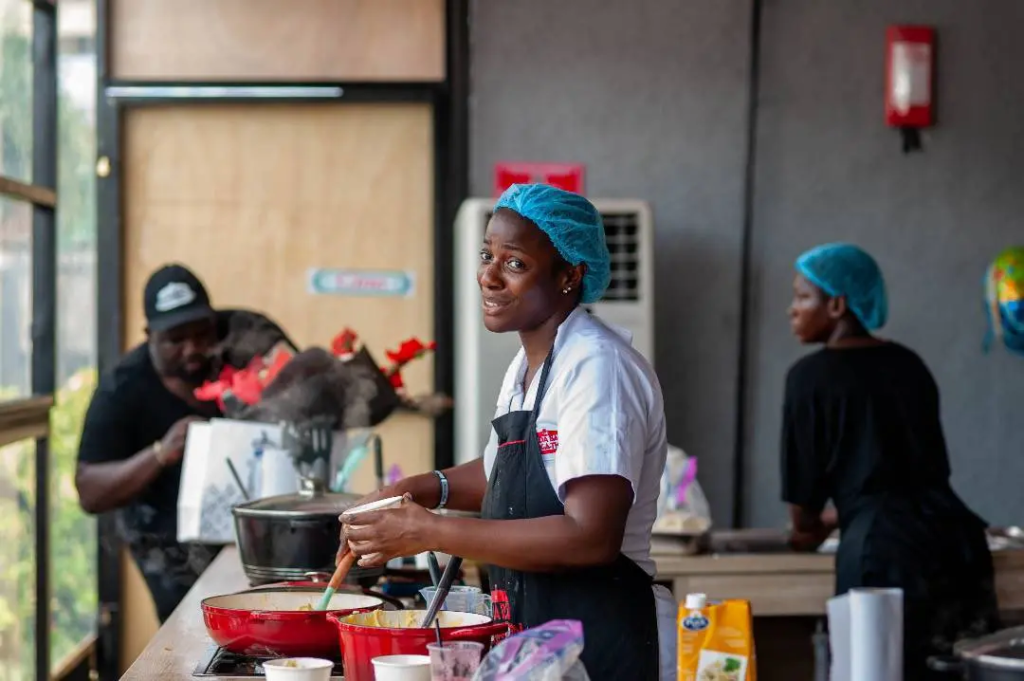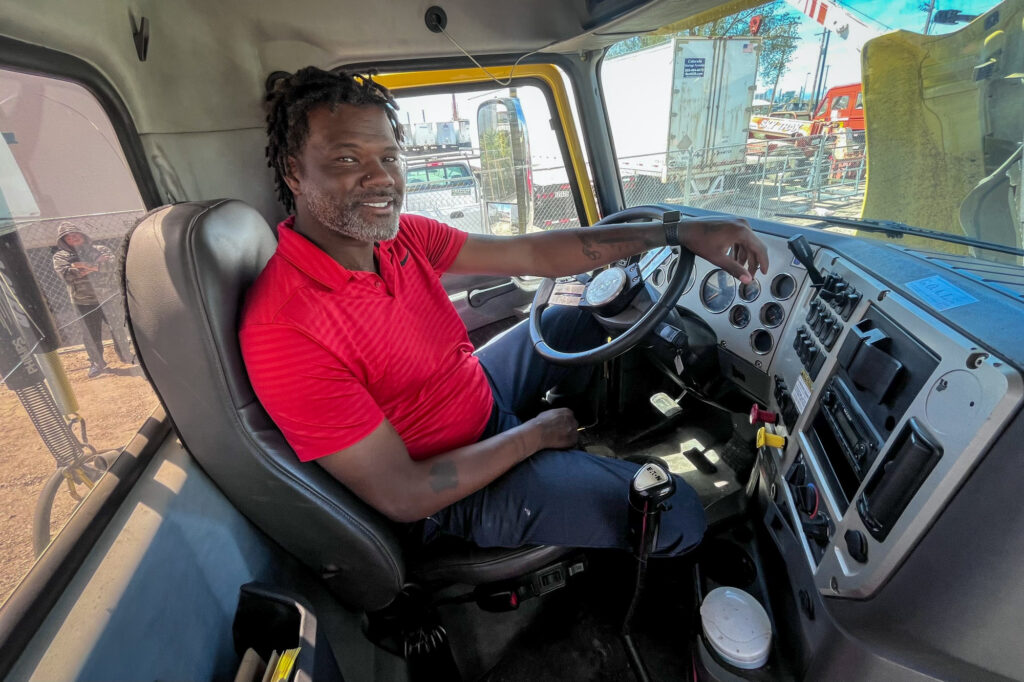
Hilda Effiong Bassey, born on September 20, 1996, and widely known as Hilda Baci, is a Nigerian multi-talented individual who has made her mark as a chef, restaurateur, and actress. Her culinary prowess reached remarkable heights when she set the Guinness World Record for marathon cooking (cook-athon) in May 2023, a remarkable feat that spanned an impressive 93 hours and 11 minutes. This accomplishment has propelled her into the limelight.
Hilda Bacci’s knacking viral video has sparked diverse reactions online. Some viewers perceive her actions as a self-promotion strategy, garnering attention and potentially generating substantial financial gains. You can watch the video at the end of this article.
Understanding the Need for Cooks in Canada

For many people wanting to move to a new country, Canada has always been a popular choice. It has a strong economy, good quality of life, and a lot of job options. This makes it a sought-after place to live. For those who can cook and have experience, finding a cooking job and getting a visa to work in Canada is a great opportunity.
Canada’s food industry is growing. There is a big demand for talented cooks and chefs in different places like restaurants and cafes. It’s expected that over 140,000 new jobs will be available in Canada’s food industry from 2028. As many cooks retire, new immigrants will help fill the shortage of workers.
For people who can show they are good cooks, getting a Canadian work visa for a job offer is possible. Let’s look at how you can increase your chances of doing this.
Assessing Your Skills and Credentials
Canadian employers prefer cook applicants who have:
- Official training and credentials like culinary degrees, certificates, or diplomas
- More than 3 years of cooking experience in a professional kitchen
- Skills in specific cooking techniques and cuisines that match the job requirements
- Good English or French language skills
Think about your education, cooking skills, and language level. Identifying areas that need improvement will give you time to enhance your qualifications.
It’s important to have your credentials assessed and acknowledged in Canada. An organization like World Education Services can provide a report showing how your international cooking qualifications compare to ones in Canada. This report can be given to employers.
Targeting Provinces and Cities
Some places in Canada need immigrant cooks more than others. Focus your job search on provinces and big cities with lots of foodservice opportunities:
- Ontario – Toronto, Ottawa, Hamilton, Kitchener
- British Columbia – Vancouver, Victoria
- Quebec – Montreal
- Alberta – Calgary, Edmonton
These cities with different cultures also make it easier for newcomers to adjust and fit in.
Look for specific neighborhoods where there are groups of immigrants, useful stores, and other facilities that support your own way of cooking.
Finding Jobs with VISA Sponsorship

The key is to find cooking jobs where the employer will support your work permit and visa application. This will need you to be persistent and have a clear plan.
- Create profiles on popular Canadian job websites showing your cooking skills. Sign up for email notices about new cooking job offers.
- Connect with organizations that help immigrants find jobs. They can match cooks with employers who are ready to hire and sponsor from abroad.
- Think about short-term internships or apprenticeships in Canada to get better chances of being hired.
- Go to immigration events and food-related gatherings in Canada to meet potential employers directly.
- If you have family in Canada, use their local contacts to spread your resume.
- Contact Canadian recruiting agencies that focus on hiring staff for hospitality jobs.
Getting visa sponsorship at the start will help a lot in the immigration process. Be ready for it to take some time.
Understanding the Immigration Process
Once you have a cooking job offer that meets the rules, the employer can ask the Canadian government for permission to hire you as a foreign worker.
If this is approved, you’ll get a temporary work permit to work for that employer. This permit can last for up to three years and can be extended.
Later on, if you meet language and residency rules, you can apply to become a permanent resident through Express Entry, letting you stay in Canada for a long time.
Keep in mind that you’ll need to have health exams and police checks to get final approval for your visa. It can take four to eight months to get a work permit.
What It’s Like to Work as a Cook in Canada
If you get permission to move to Canada for a cooking job, here are some things to expect when living and working there:
- Most of the time, your pay will match what Canadian cooks get. The least you can be paid changes in different places, often around $12 to $15 Canadian dollars per hour.
- Living costs are highest in cities like Vancouver and Toronto. Sharing a home can help cut costs. Plan your budget well.
- Public transport is easy to use. You might not need a car, especially in big cities.
- Make sure to fill out all the tax forms needed. Workers in Canada have to pay income taxes.
- Canadian kitchens need multitasking. You’ll need to juggle many cooking jobs.
- Cooking jobs often mean standing for long periods. You need to have strong endurance.
- Even in Quebec, English is mostly used at work. Good understanding of English is important.
With some preparation and determination, moving to Canada to pursue cooking opportunities can become a reality. Get any questions answered by an immigration lawyer and make sure your paperwork is in order. If cooking is your passion, Canada could become your new home. Good luck!
Steps for Cooks to Get Canadian Work Visas

Canada is a popular destination for immigrants due to its good job market and high living standards. There is a high demand for skilled cooks in the expanding foodservice sector throughout Canada.
Skilled cooks who meet the immigration requirements of Canada can obtain employer-sponsored work visas. Here’s an overview of the main steps:
1. Assess Your Credentials
It’s essential to have your international cooking qualifications formally evaluated. An Educational Credential Assessment from an authorized organization is required for this purpose.
This assessment verifies the authenticity of your credentials and provides Canadian equivalents. Canadian employers value these assessments highly.
2. Explore In-Demand Cooking Jobs
Thoroughly review job postings to identify specific cooking positions with Canadian employers willing to hire and sponsor foreign workers. Focus on roles that match your expertise and credentials.
Concentrate on employers in major metro areas like Toronto, Vancouver, and Montreal, where job growth in the foodservice industry is strong. Join relevant LinkedIn groups to expand your professional network.
3. Meet Language Requirements
Canada has strict language requirements for immigrant cooks. You must demonstrate proficiency in English or French through standardized testing.
Target achieving scores of CLB 5-8 on Canadian language tests like IELTS or TEF Canada. Consider enrolling in language preparation courses if you need to improve your skills.
4. Upgrade Your Skills If Needed
Based on your assessment results and work experience, you may have to undergo targeted skills upgrading, additional training, or apprenticeship programs in Canada.
This demonstrates to employers that you are investing in your professional development and integrating into the Canadian workforce.
5. Secure a Job Offer
The key is to secure a concrete, written job offer from a Canadian employer willing to sponsor you. This offer letter should detail position responsibilities, wages, hours, benefits, etc.
Once you have this, the employer can submit an LMIA application and temporary work permit request on your behalf to immigration authorities.
Complete Visa Application Requirements
After your application is approved, gather all necessary paperwork for your work visa, including educational transcripts, police certificates, medical exam results, proof of funds, etc.
If you need help navigating requirements, consider hiring an immigration lawyer. It’s important to be patient, as processing times for Canadian work visas can be several months.
Skilled cooks have a viable path to obtaining Canadian work authorization with dedication and persistence. If you have the right credentials and experience, start laying the groundwork today to achieve your Canadian culinary job goals.
Top Tips for Cooks Seeking Visa Sponsorship in Canada

With the booming food industry in Canada creating high demand for cooks and chefs, obtaining work authorization through an employer-sponsored visa is an achievable goal. Here are insider tips to increase your chances of success:
- Tailor your resume for Canadian employers – Highlight your in-demand Canadian cooking skills, expertise in multicultural cuisines, technical abilities, credentials, kitchen management experience, and English fluency.
- Network at industry recruitment events in Canada – Attend hospitality trade shows, food festivals, and conventions in leading cities to connect directly with potential employers.
- Consider short-term Canadian internships – Participate in apprenticeships, stage programs, or work exchanges with Canadian restaurants and hotels to build connections and show adaptability.
- Target roles in understaffed regions – Remote communities and provinces like Saskatchewan, Newfoundland and Labrador have difficulty attracting immigrant cooks. Focusing on these locations can increase your chances of visa sponsorship.
- Obtain recognized culinary credentials – Earn credentials like Red Seal, Quebec DEP, or provincial journeyperson designations to demonstrate your adherence to accredited cooking standards.
- Address skill gaps early – Enroll in skills upgrading programs if your assessment reveals gaps prior to applying for immigration. Demonstrating progress shows commitment.
- Get assistance from recruitment specialists – Executive search firms have employer partnerships and can match your background to visa-sponsoring kitchen job vacancies.
- Highlight cross-cultural strengths – As Canada’s population diversifies, adaptability and ability to prepare diverse cuisines are advantageous.
- Explore provincial immigration programs – Provincial nominee programs offer alternative pathways to permanent residence for cooks filling labor shortages.
With proper preparation, cooks aspiring to relocate to Canada can certainly secure roles that provide visa sponsorship. Strategically approach your job search, and you will find the right opportunity.








![Nursing Jobs In New Zealand For Foreigners With VISA Sponsorship [Get Started]](https://travel.fruitonix.com/wp-content/uploads/2024/03/WhatsApp-Image-2024-01-09-at-02.17.37_1a77d189.jpg)
